Can I get an annulment when I have no marriage license?
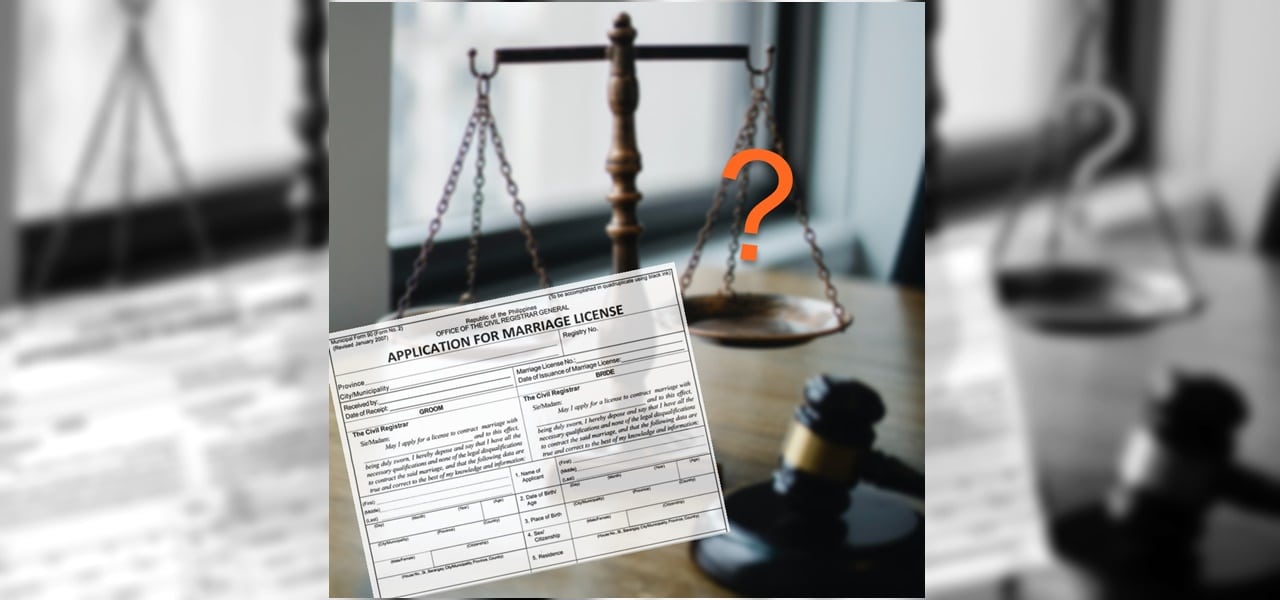
A void marriage is many things including the lack of a marriage license.
A marriage is only valid when you have a marriage license or if you have an Affidavit of Cohabitation instead of a marriage license.
So what if you do not have either?
Is your marriage considered void?
The answer is yes, it is void.
But you will still need an annulment to legally end the marriage and get a CENOMAR.
Contents
- What is a marriage license?
- Is my Marriage void if I married and there was an issue with my marriage license?
- How do I prove that I had no marriage license or that there was an issue with it?
- What is an Affidavit of Cohabitation and why is it important?
- How do I prove that my Affidavit of Cohabitation is invalid?
- How do I file an annulment?
- What are the steps for filing an annulment?
- How long does it take and how much does it cost?
- Are there any other options aside from annulment?
What is a marriage license?
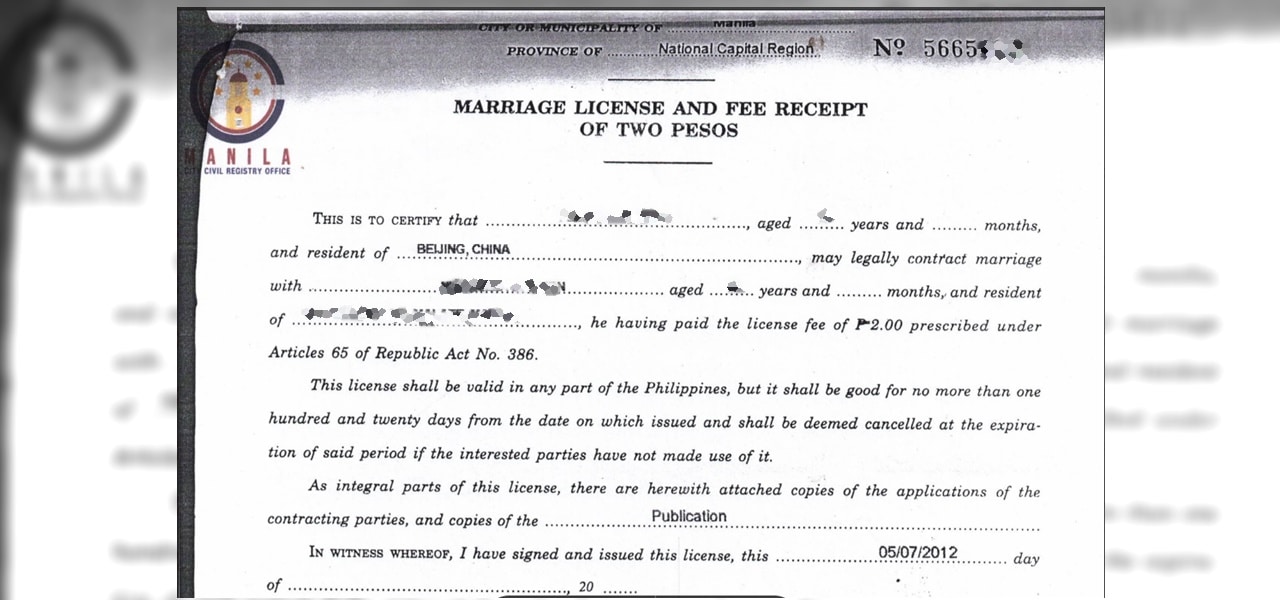
Marriage license is issued by the local civil registrar of a city or municipality where the spouses reside.
A marriage license is a document that allows a person and his/her soon to be spouse to marry anywhere in the Philippines.
It’s proof that you have met the legal requirements to get married.
It’s valid for 120 days from its issue date and must be secured before either a civil or church ceremony.
The marriage license shows:
- Place of marriage
- Full names of bride and groom, ages and birth dates, complete addresses, gender, citizenship and other personal details.
- Marriage license number must also be shown.
Is my Marriage void if I married and there was an issue with my marriage license?

Minor issues like inadvertent omissions or typographical errors in the marriage license does not make it invalid
Some marriages are celebrated without a marriage license and without an Affidavit of Cohabitation.
Those marriages are void, but still have to go through annulment to get a CENOMAR at the PSA.
On the hand, other marriages might have marriage license information on the marriage certificate but there may be an issue with the marriage license – for example, the marriage license is actually for another couple, it is a fake license number, or it was issued after the ceremony.
These examples can be grounds for annulment based on lack of formal requisites of marriage.
Please note – typo errors on the marriage certificate or license do not make the marriage void. (Yes, we’ve had people contact us for this, and no, one missing letter doesn’t make everything void.)
If you do have an issue with lack of a marriage license, you will need proof so that the annulment case is successful.
But, what proof do you need?
How do I prove that I had no marriage license or that there was an issue with it?
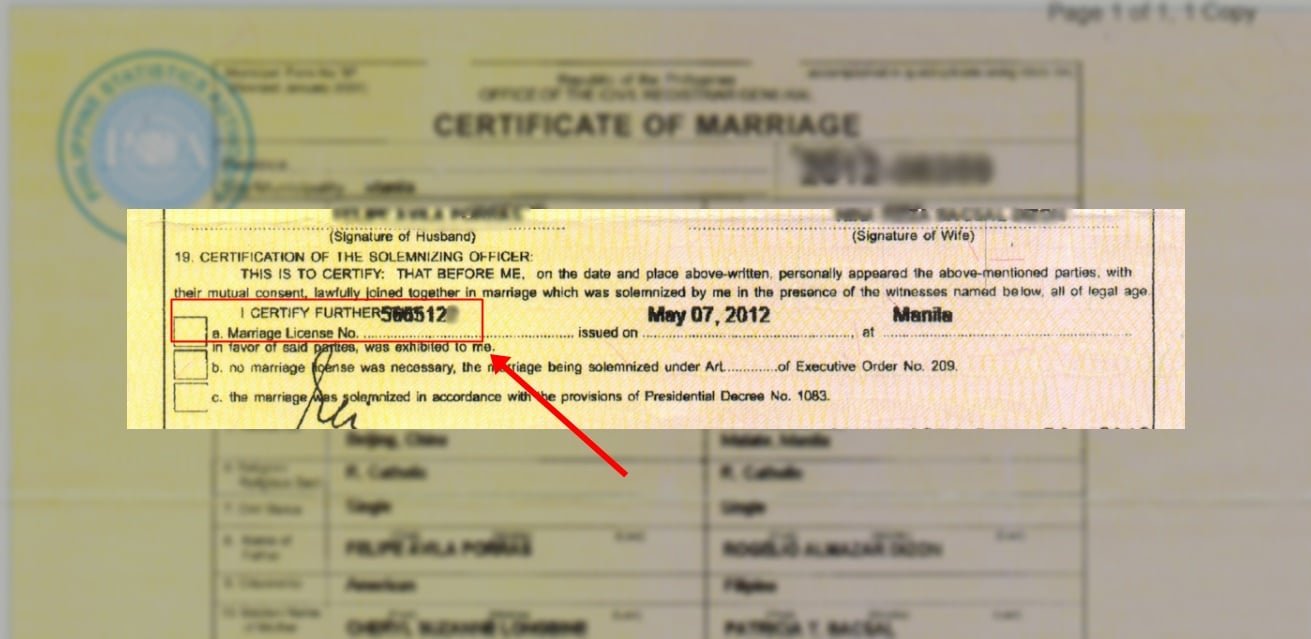
It is necessary to get a certified copy from the Local Civil Registrar
First, check your marriage certificate.
If you do not have a copy you can get one at the Philippine Statistics Office (PSO) or at the Local Civil Registrar’s (LCR) Office of the city /municipality where your marriage was registered.
On your marriage certificate, check the marriage license number.
If there is no number, then this may already be proof that there was no marriage license submitted when you got married. You will need to request for a certification from the LCR that there is no record of your marriage license.
If there is a marriage license number, contact the LCR and get the marriage license file for the number. Check if the number is registered under your names. If it’s under a different name, then your marriage license is not valid.
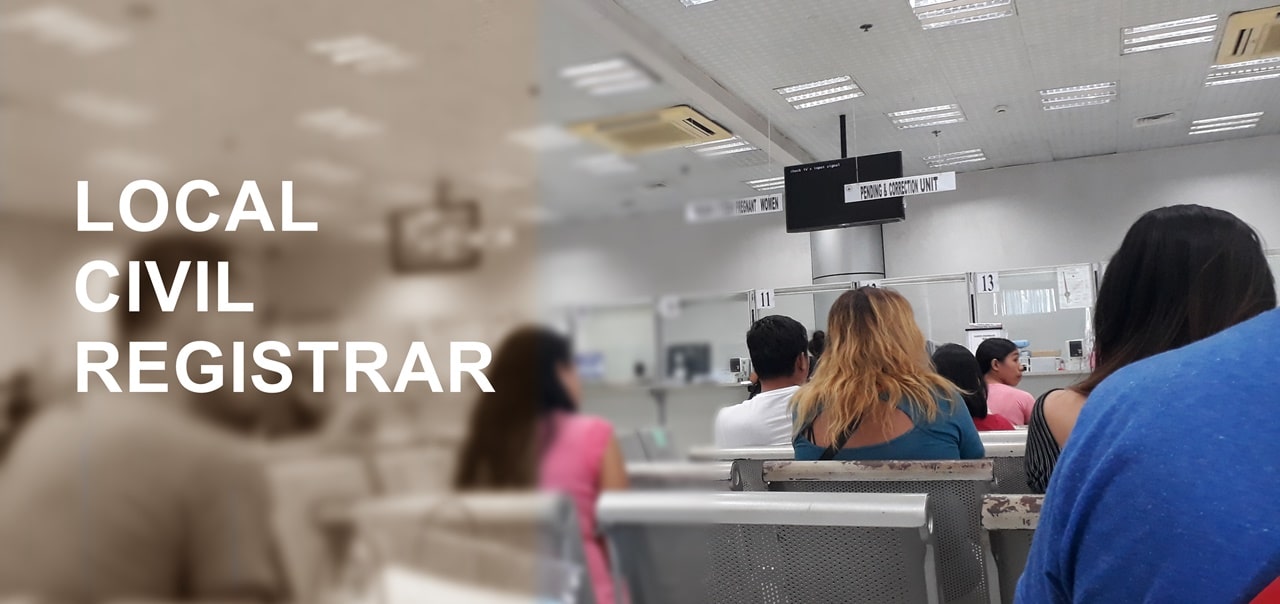
Local Civil Registrars are usually busy so it is highly suggested to go early in the morning so that the officers are still fresh.
Also, check the date the marriage license was issued and double check expiration date.
If you married after the license expired, your marriage is not valid. The opposite is also true, if you license was issued after your marriage, then your wedding is not valid.
Now, what if you did not appear at the LCR for the marriage seminar or you acquired the license through a fixer?
In that case, the officer who gave you that license may be charged administratively but your marriage is still considered valid if the marriage license was actually issued to you.
To summarize –
If you have an issue with your marriage license, get the entire marriage license and marriage application file at the LCR. If there is no file, get a document from the LCR stating that there was no marriage license.
You will need to submit this to a lawyer when you start your annulment case on grounds of improper or no marriage license.
What is an Affidavit of Cohabitation and why is it important?
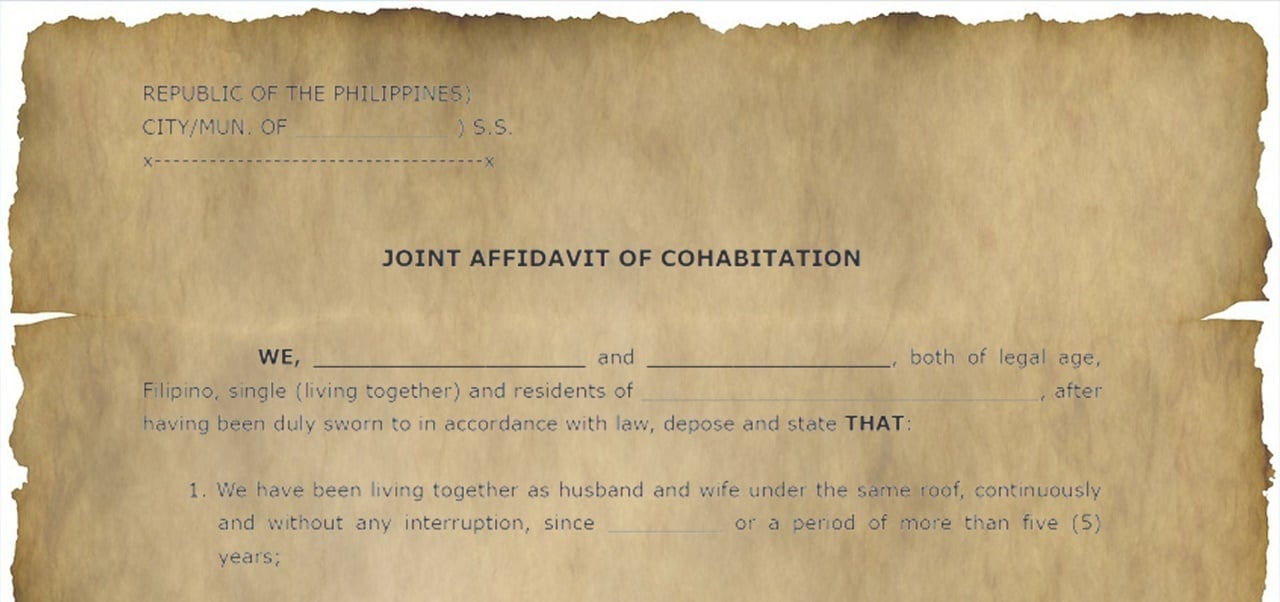
They must have lived together for 5 years so that an Affidavit of Cohabitation is possible.
An Affidavit of Cohabitation is a notarized affidavit stating that the couple have been living together for 5 years without impediment.
Being without impediment means that they both could have gotten married when they started living together. Some examples are:
- That both are of legal age at the time they started living together
- That neither was disqualified from marrying each other (i.e. neither one was already married.)
This is submitted to a priest or officiating officer instead of a marriage license.
An Affidavit of Cohabitation can be used in place of a marriage license.
Please note that if there was a marriage but that the affidavit contained false information (there was legal impediment on one side, they were not actually living together) then any marriage based on it can be challenged and be ended through annulment.
How do I prove that my Affidavit of Cohabitation is invalid?

If it can be proved that one of the couple was living abroad when he was supposed to be cohabitating with the other, then this can be used as proof that the Affidavit was invalid.
To prove that your cohabitation was less than 5 years, you will need witnesses that can testify that you had lived together for less than 5 years.
These witness testimonies must also be accompanied by documentary evidence.
For example, you can get travel records from the Bureau of immigration that show that one or both parties were not living in the same country during the time they were supposed to be cohabiting.
Additional other documents can be needed.
However, please remember that if you try to use this defense, it is possible that you will be charged with falsifying documents.
This can carry with it jail time, so please consult first with one of our family lawyers before using this ground for your annulment.
How do I file an annulment?

Petitions are filed with the RTC-OCC of the City or Municipality where the marriage certificate is recorded
You need to file a Petition for Declaration of Nullity of Marriage.
A Declaration of Nullity of Marriage can be filed when there is a lack of marriage license, or the marriage license has a serious error. A serious error is when a marriage license clearly refers to a different person (simple typographical errors are not sufficient).
A Declaration of Nullity of Marriage ends the marriage formally and allows you to get a CENOMAR.
A Declaration of Nullity of Marriage is considered the same as Annulment by laypeople although it legally it differs slightly from Annulment per se; the end effect is the same in that it ends the marriage and its process is broadly similar which is why many people consider them one type of case.
Regardless, you will be filing a Declaration of Nullity of Marriage for lack of marriage license or a false Affidavit of Cohabitation.
You must first hire a family lawyer to file the case.
The family lawyer you hire will go through the documents that you have and see what other proof is needed if you are filing on lack of marriage license grounds or a very erroneous Affidavit of Cohabitation.
From there, your Family lawyer can complete the Petition and Judicial Affidavits needed to file the case.
What are the steps for filing an annulment?

You actually do not have to worry about the procedure because this is why you hire a lawyer at the first place.
1. Find a lawyer
Once you have decided to go through with the process, you will need a lawyer to file all the necessary documents and represent you in court. Your lawyer will also need documents from you, which include:
- Your marriage certificate,
- If you have children, birth certificates of your children,
- Your complete address, and proof of residence, for the last 6 months. These can include utility bills, governments ID’s, a lease contract or a land title.
- A notarized barangay certificate with a sketch map of your residence.
- List of at least 2 witnesses who directly witnessed the events you want to prove
- Certification from the LCR that you were not issued a marriage license or for the affidavit of cohabitation proof such as travel documents showing non-cohabitation from both ends
- Other documents as determined by your lawyer
2. File the petition
After all the above steps have been done, your family lawyer will go ahead and draft the petition.
He will also to talk to all your witnesses who will be testifying in court on your behalf. He will use this information to draft the Judicial Affidavits needed.
Your lawyer may then double check with you to ensure that the details are correct and accurate.
Once finalized, your lawyer will file the petition at the family court of the city you have lived in for at least 6 months before you filed your petition.
3. Attend the Pre-Trial and Collusion Investigation
The judge assigned to your case will ask a prosecutor to conduct a collusion investigation to make sure both parties did not conspire to file the petition.
This means you and your partner should not have agreed to file for an annulment from each other.
This also means that any proof that you present should be real and actual proof.
Make sure to attend as a non-appearance by a petitioner may lead to a dismissal of the petition.

Collusion investigations are held in the prosecutor’s office where the prosecutor attempts to find evidence of connivance between the petitioner and the private respondent
4. Trial
This is when you are ordered to appear in court for the hearings regarding your annulment. These hearing are when evidence is presented and witness testimonies are heard.
You may be asked to go back a few times.
Make sure to always be present as your case may be dismissed if you do not attend.
5. Wait for the Decision and Finality
The decision is released after a Formal Offer of Evidence is granted.
It may take a while and will largely depend on the case load of the court.
If the petition is granted, wait for 15 days after the Decision of the court has been served to the respondents. Note that because it is 15 days from the date of service of the respondents, this can take a few weeks to months due to postal service issues.
If there is no motion for reconsideration or appeal during this time, you can get a Certificate of Finality from the court.
6. Registration at the LCR and PSA Main
The Decision must be recorded at the LCR and the PSA (Philippine Statistics Office).
This is a manual process and requires several trips back to the Court, the LCR and the PSA main.
Due to processing, this may take several weeks to months.
How long does it take and how much does it cost?

Hiring a lawyer and filing a court case may be expensive and tedious but it is very rewarding in the end.
The process for the annulment will begin as soon as your lawyer submits your petition.
If your spouse doesn’t contest the annulment and there are no other issues such as property, custody or support then the whole process can take from 3 years or more to finish.
This timeline is very dependent on the court’s calendar.
(Note that we suggest removing property concerns, child support and other issues from the case because it can really extend the timeline and cost. It’s better to file separate cases for these other concerns.)
Cost for the annulment will be different for every lawyer but it can range between Php 300,000 to Php 600,000.
(Please note, this is very, very dependent on what the actual circumstances are. You may need a psychologist to strengthen your case, and that can add to cost or you may need more research which adds to cost as well. Or it may be less.)
If it takes longer because the annulment is contested, costs can reach much higher.
These are pretty high figures for ending a marriage and our foreign clients (and even local clients) often need us to explain why.

It’s best to pay for an annulment lawyer you trust since an annulment denied on its grounds cannot be filed again.
In the Philippines, divorce is not allowed.
Divorce in other countries is very streamlined and it barely has a trial.
In the Philippines, ending a marriage requires a trial and the presentation of evidence and proof.
A trial requires preparing witnesses – in this case 3 including the petitioner – and their written Judicial Affidavits.
The documentary proof also requires a lot of work pulling the research from the correct institutions.
Additionally, service requirements such as notice and publication may be needed.
And all of this must be overseen by a lawyer.
A lawyer must oversee this because the quality of proof is important and the legal strategy sound.
A lawyer may request that you get a psychologist because the proof may have to be stronger.
This is done to win the case because if an annulment is lost, you can never file it again and you will remain married in the Philippines.
If you find a lawyer you can trust, work with him because the little legal requirements that have to be complied with (that clients never see) can make or break a case.
Are there any other options aside from annulment?

Unfortunately, there is no divorce in the Philippines because majority of law makers are conservatives.
No, not really.
People think that a Legal Separation is cheaper than annulment and will end the marriage.
However, a Legal Separation is more expensive than annulment and will not end the marriage.
A legal separation is court-approved decision that allows the separation of a husband and wife and ends marital obligations. However, you are still married to each other.
For anyone who really wants to end a marriage, you will likely have to go through annulment.

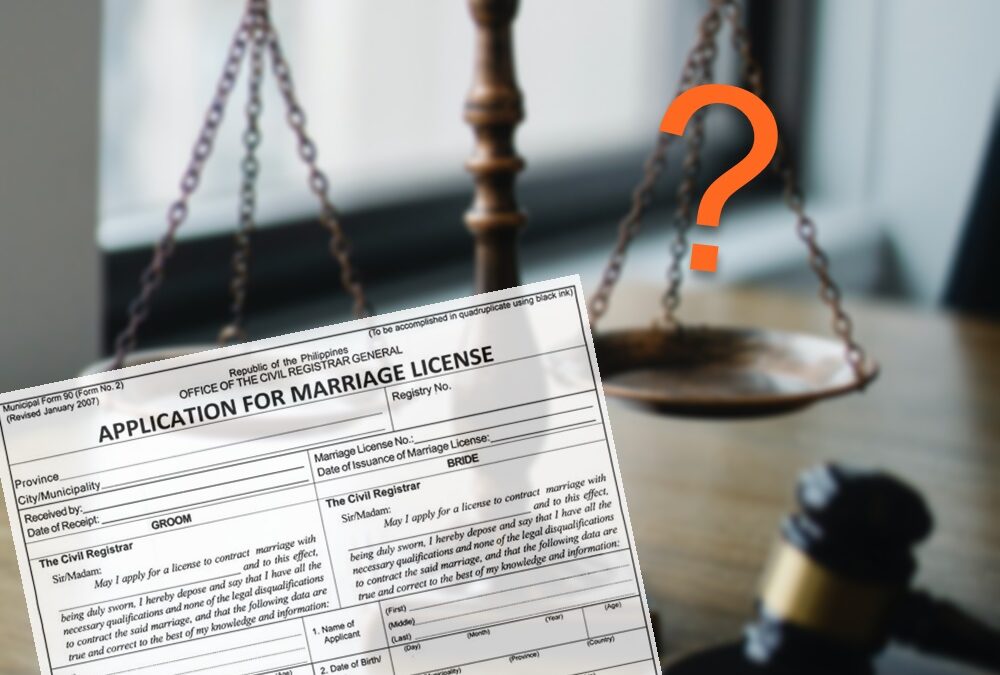




0 Comments